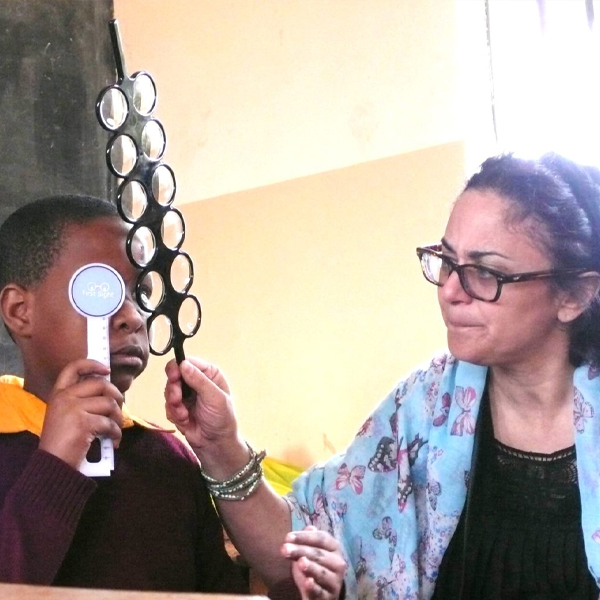In the sprawling expanses of Africa, where vibrant cultures and diverse ecosystems thrive, a less visible and pressing issue casts a shadow on the future of millions: the growing prevalence of eye problems exacerbated by malnutrition and widespread ignorance. This crisis not only limits individual potential and diminishes quality of life but also poses significant barriers to educational and economic development in underdeveloped regions.
The Silent Epidemic of Malnutrition
Malnutrition remains one of the gravest health challenges in many parts of Africa, particularly affecting vulnerable populations in rural and underserved communities. Essential nutrients, crucial for maintaining healthy vision, are often lacking in the diets of many individuals in these regions. Vitamin A deficiency, a preventable cause of severe visual impairment and blindness, is alarmingly common among children and pregnant women, who are most susceptible to its effects.
The consequences of such deficiencies are profound: impaired vision can delay cognitive development in children, reduce adults’ work capacity, and increase general susceptibility to infections, further entrenching the cycle of poverty and malnutrition.
Compounding Challenges: Ignorance and Lack of Access
The issue is compounded by a pervasive lack of awareness about eye health. In many African communities, there is little understanding of the impact of nutrition on vision or the importance of early intervention in preventing eye diseases. Cultural misconceptions and stigmas about eye care, including resistance to wearing glasses, further inhibit community members from seeking help or embracing preventive measures.
Moreover, access to eye care services is severely limited in remote areas. Without the necessary infrastructure to diagnose and treat eye conditions, minor problems often evolve into serious, life-altering issues.
First Sight: A Beacon of Hope
Organizations like First Sight are at the forefront of tackling these challenges by implementing integrated approaches that address both the immediate needs and root causes of the eye health crisis:
Nutritional Interventions: First Sight partners with local health organizations to provide access to vitamins and supplements that are critical for eye health. Educational programs are also launched to inform communities about the importance of a balanced diet rich in eye-nourishing nutrients.
Awareness and Education: Through community workshops and outreach programs, First Sight raises awareness about eye health, demystifying common misconceptions and educating individuals on the signs and symptoms of eye diseases. These efforts are crucial in building a culture of prevention and early intervention.
Accessible Eye Care: Recognizing the urgent need for accessible treatment options, First Sight deploys mobile eye clinics that travel to remote areas to provide screenings, treatments, and glasses. This direct approach ensures that help reaches those who need it most, bridging the gap between urban and rural health care services.
How You Can Help
The battle against the eye health crisis in Africa requires collective action and sustained commitment. Here’s how you can contribute to the cause:
Support and Donate: Financial contributions enable organizations like First Sight to continue their vital work. Every donation helps expand reach and impact.
Volunteer: Offering your time and skills can make a direct difference in the lives of those affected by these health issues.
Spread the Word: Raising awareness about this issue is crucial. Share information, talk about the crisis, and encourage others to get involved.
Conclusion
The growing crisis of eye problems due to malnutrition and ignorance in underdeveloped African regions calls for urgent action. By supporting initiatives that combine nutritional support, education, and accessible care, we can illuminate paths to healthier futures. Join First Sight in their mission to restore vision and hope to those living in the shadows of this silent epidemic.


